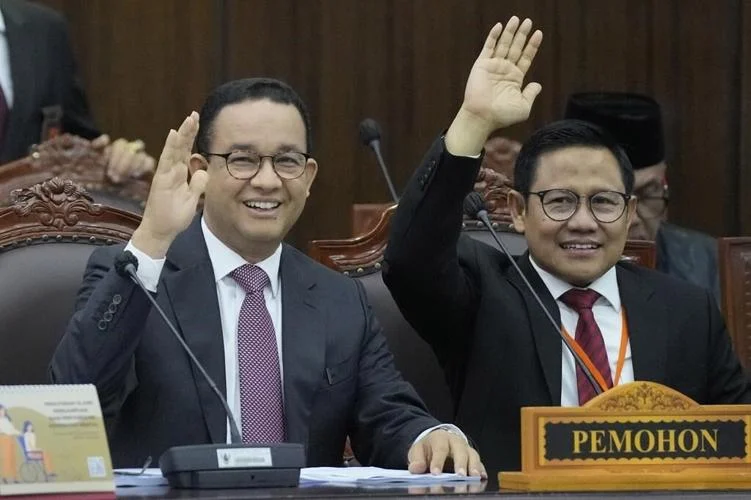
AP Photo/Dita Alangkara
Indonesia's Constitutional Court recently heard appeals from two presidential candidates who contested the election results, demanding a revote. Defense Minister Prabowo Subianto emerged victorious with a significant 58.6% majority, securing over 96 million votes, more than twice the share of his closest rival in the three-way race.
Former Jakarta Governor Anies Baswedan and former Central Java Governor Ganjar Pranowo, the losing candidates, alleged widespread irregularities and fraud during the election campaign. They presented their cases before the Constitutional Court separately, seeking to annul the election outcome and call for a revote.
During the hearings, both candidates raised concerns about irregularities that they claim tarnished the democratic process. Baswedan emphasized the need to address these irregularities, stating that they had undermined the integrity of the election. Meanwhile, Pranowo highlighted instances of alleged abuse of power and intimidation by the government to influence the election outcome.
Outside the court, peaceful protests took place, with demonstrators expressing their intent to monitor the trial closely. Security measures were in place, with streets leading to the court blocked, and a significant police presence deployed to ensure order.
One key contention raised by Baswedan and Pranowo was regarding the eligibility of Subianto's running mate, Gibran Rakabuming Raka, who did not meet the constitutional requirement of being at least 40 years old. They argued that Raka should have been disqualified, and urged the court to bar him from participating in any potential revote.
The candidates also alleged that regional officials had been pressured or incentivized to influence the election outcome, and accused the government of using state resources to support specific candidates. Baswedan specifically pointed out the distribution of substantial social aid during the campaign, which he believed was aimed at influencing voters.
Pranowo echoed these concerns, condemning the abuse of power and the use of state resources for personal political gain. He emphasized the need to reject intimidation and oppression in all forms and called for a firm stance against such practices.
This isn't the first time Subianto has faced challenges to election results. In the past, he contested the outcomes of elections he lost to outgoing President Joko Widodo, but his claims were dismissed by the Constitutional Court. The aftermath of the 2019 presidential election saw violent protests in Jakarta after Subianto refused to accept the results.
The Constitutional Court adjourned the hearings until the following day, allowing Subianto and the General Election Commission to respond. The verdict, scheduled for April 22, will be final and cannot be appealed.
Due to a conflict of interest involving a member of the court, the case will be decided by an eight-member panel instead of the full nine-member court. Despite these legal proceedings, Indonesia continues to grapple with the aftermath of a contentious election, highlighting the challenges of ensuring electoral integrity in a democratic society.















